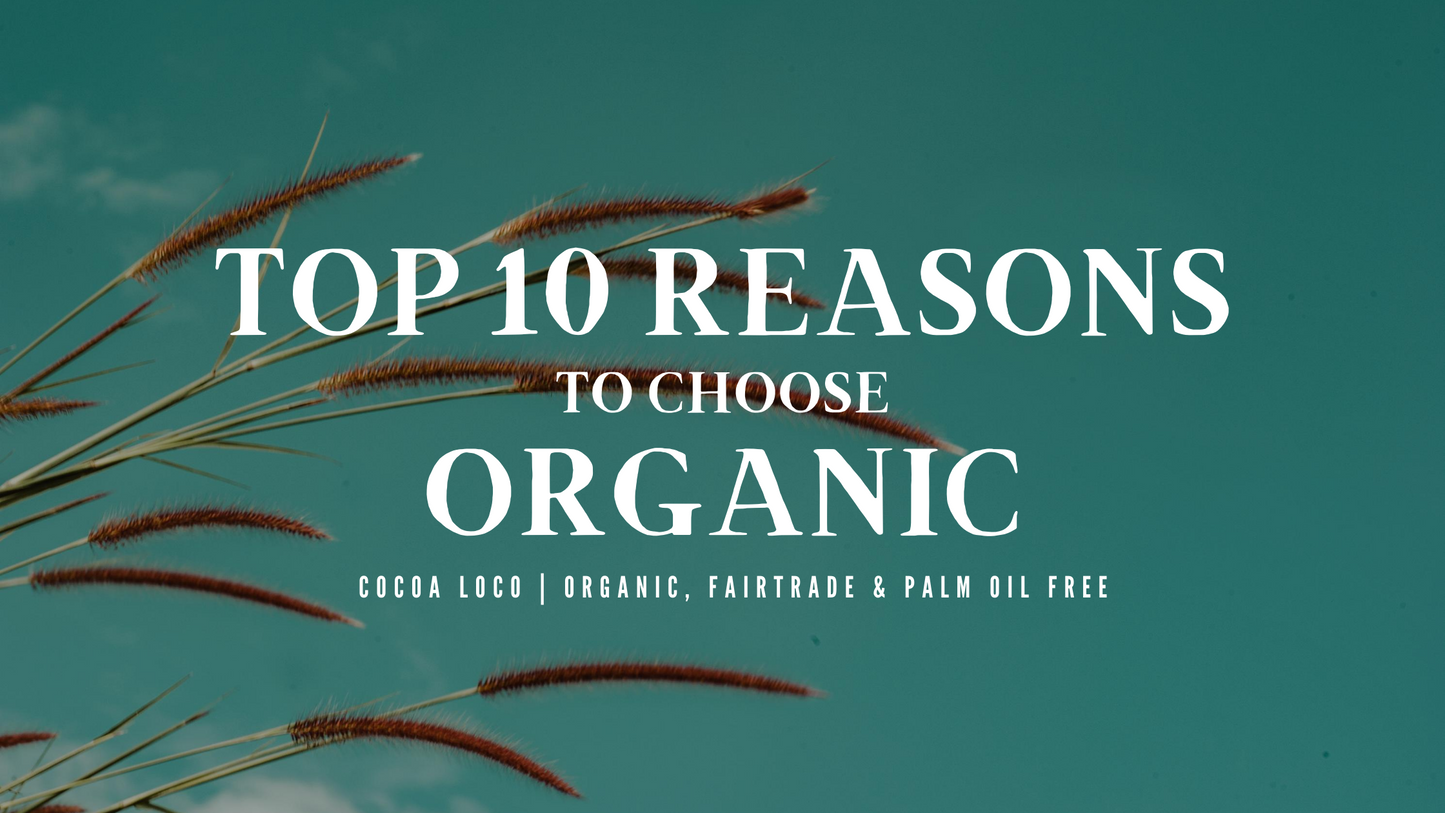
We’ve all heard it before. Choosing organic is good for us and the planet. But why exactly should you choose organic? We've found some answers for you and have made a Top 10 list of some of the reasons why choosing organic is so important.
1. Fewer pesticides
Pesticides are chemicals designed to kill insects and other pests. It has been shown through recent studies that the pesticides have a direct and indirect impact on the current biodiversity crisis. Under the Soil Association’s organic standards, almost all forms of pesticides, except those that are naturally derived, are banned. However, the use of the naturally derived pesticides is only allowed under very restricted circumstances. Instead, organic farmers aim to create a symbiotic and natural balance between plants and animals to prevent pests.
2. Healthier soils
Organic farmers use no artificial fertilisers, instead they build fertile soils naturally by using compost, manure and by rotating their crops. Healthy soil is one of our most important tools in fighting climate change, as there is more carbon stored in the world’s soils than in plants, trees and the atmosphere combined.
3. More environmentally friendly meat
Are you having a hard time giving up meat? Choosing organic might be an alternative for you. By eating less and better meat from organic farmers you will be choosing the more sustainable option. This is due to the fact that organic farms have less cows that produce methane, a greenhouse gas that contributes to climate change. Besides this, organic farms don’t rely on the use of as much water and grain crops for animal feed as conventional farms do. Lastly, grazing animals provide organic farmers with a reason to grow grass for animal feed which helps draw carbon into the soil and thereby make it healthier.
4. Higher welfare for farm animals
Organic farming has the highest animal welfare standards compared to any other farming system in the world. This means that all animals are truly free-range and encouraged to graze and express their natural behaviour. Mutilations such as beak-tipping to prevent the aggressive side effect of stress in chickens is neither allowed nor needed.
5. Nature-friendly land use
As previously mentioned, organic farmers rely on healthy and symbiotic ecosystems to control pests and protect their soils, rather than using pesticides and artificial fertilisers. Instead, they encourage wildlife by planting trees, wildflower margins, ‘beetle banks’ and digging ponds around their fields. This all means that the organic farms are more ecologically diverse.
6. Supports cleaner water for wildlife
When conventional farmers use nitrogen fertilisers for their soil, they ultimately contribute to potentially creating ‘ocean dead zones’ where life below water is deprived of vital oxygen. Due to this, fish and other life in the water might be killed. By choosing organic, you’re choosing to support a ban of these manufactured fertilisers and through that you're helping lower the risk of pollution in seas and waterways.
7. No routine use of antibiotics
The routine use of antibiotics for farm animals is used preventatively by conventional farmers and accounts for 30% of all antibiotics use in the UK. This preventative use is banned in organic farming. When the farm animals are raised in hygienic environments with the right diet and in spacious conditions, the organic farmers do not need to depend on antibiotics to keep their animals healthy.
8. No genetic modification (GM)
Genetic Modification foods, or GM/GMO foods are very limited in the UK. However, most non-organic livestock are fed them. Organic standards ban the use of GM foods and ingredients, and organic systems are opposed to genetic modification. This means that all organic farm animals are fed a natural, organic and non-GM diet.
9. No artificial colours and preservatives
The use of processing aids and additives is heavily restricted in organic products. The use of toxic ingredients is also completely prohibited by the organic standards. Many artificial food colourings and preservatives are banned, and organic foods must not contain hydrogenated fats.
10. A product you can trust
To be able to ensure that all of the above-mentioned points are maintained, Organic Certification Bodies, such as The Soil Association, work together with farmers and food processors to make sure their foods meet the strict organic standards. All organic farms are inspected once a year – sometimes these inspections are unannounced. It’s not easy to get an Organic certification, which is why you know that once a product has the logo on their packaging, it’s a product you can trust.
Cocoa Loco are proudly Soil Association Certified Organic, Fairtrade and Palm Oil Free. Everything we make is handmade with love and we’re delighted to say that we make chocolates that you can trust!
All information is taken from The Soil Association website.



